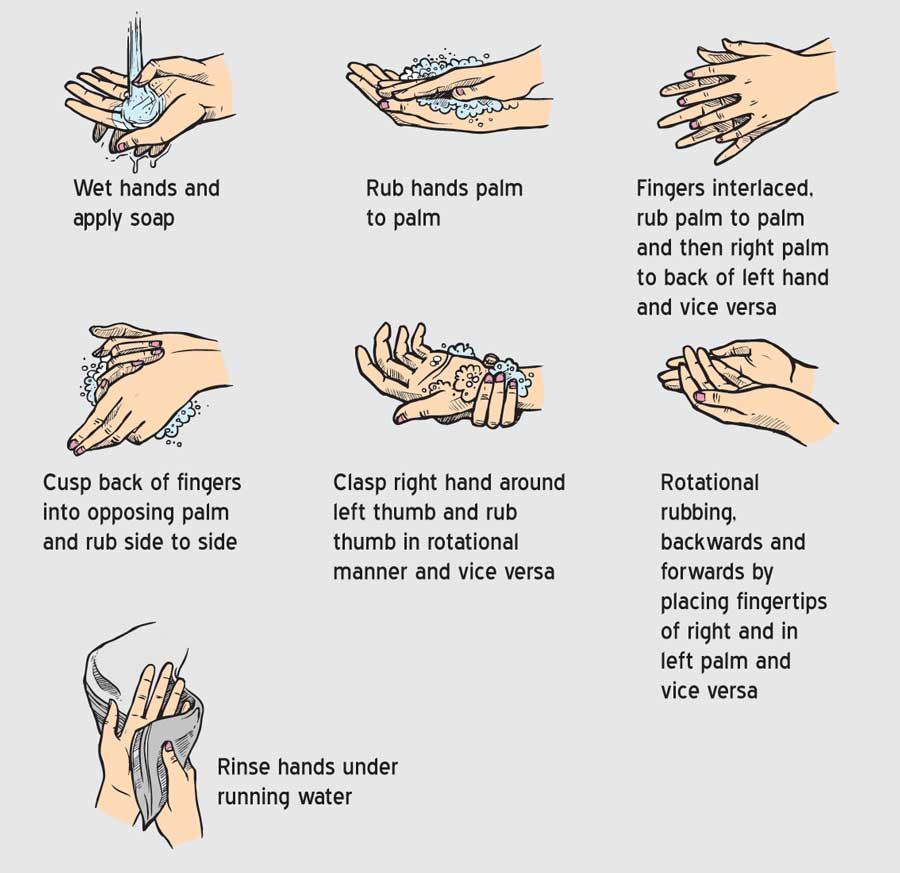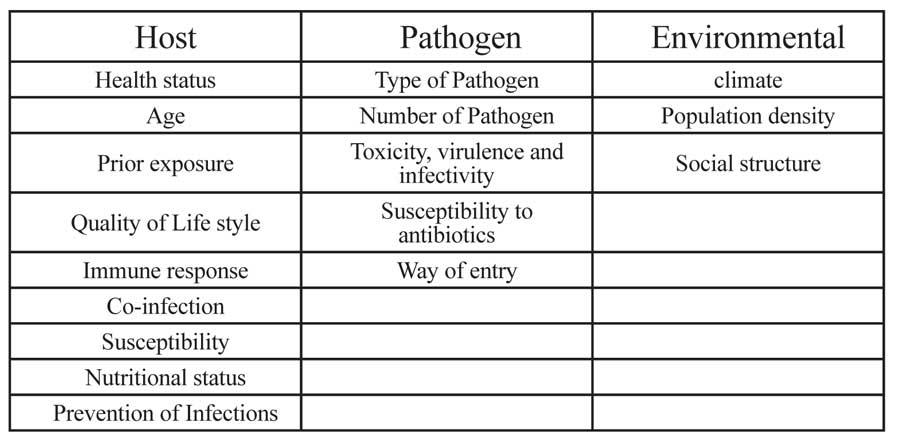Reply To:
Name - Reply Comment
Last Updated : 2024-04-24 04:08:00

 These days we experience a heavy rainy season. The rainy season always invites infectious diseases. This is because water is a prominent source that distributes germs. A few main public health concerns are resulting from climate change such as vector-borne diseases and specifically dengue fever. These diseases are expected to increase in prevalence and incidence due to Dengue transmission. Its transmission is sensitive to humidity and temperature, Leptospirosis and other rodent-borne diseases correspond with the two yearly monsoons, food and water-borne diseases, such as dysentery, viral hepatitis and typhoid. This week we are going to discuss the ways of preventing infections.
These days we experience a heavy rainy season. The rainy season always invites infectious diseases. This is because water is a prominent source that distributes germs. A few main public health concerns are resulting from climate change such as vector-borne diseases and specifically dengue fever. These diseases are expected to increase in prevalence and incidence due to Dengue transmission. Its transmission is sensitive to humidity and temperature, Leptospirosis and other rodent-borne diseases correspond with the two yearly monsoons, food and water-borne diseases, such as dysentery, viral hepatitis and typhoid. This week we are going to discuss the ways of preventing infections.
According to the WHO (World Health Organization), infectious or communicable diseases are caused by microorganisms such as bacteria, viruses, parasites and fungi that can be spread. They can be spread directly or indirectly, from one person to another through contact with contaminated surfaces, bodily fluids, insect bites, ingesting contaminated food or water or
through the air.
The frequent vulnerability to these infectious diseases cause a significant burden on the country economically and are a major public health problem in many countries. It will spoil our health.
Mechanism of infection
Infection occurs when a pathogen invades body cells. Then they start to reproduce in numbers. An infection will usually lead to an immune response. If our immune response is quicker and effective, the infection would be eliminated or contained so fast that the disease would not occur. When immunity is low or impaired, virulence (ability to damage host cells) of the pathogen is high, and if the number of pathogens in the body is great, then disease can occur. When Pathogens are infected the host’s immune system recognizes the pathogens. Our immune system consists of two types of responses such as innate immune response or natural and antigen-specific adaptive immune response. The innate immune system is composed mainly of physical barriers, such as skin and mucous membranes, chemical barriers, through the action of antimicrobial peptides and reactive oxygen species, innate immune cells, and soluble mediators such as the complement system, innate antibodies, and associated cytokines. The main purpose of this innate or natural immune response is to prevent the entry of pathogens into the body through physical and chemical barriers. It will then help avoid the spread of infections through the complement system to remove pathogens through phagocytosis (ingestion of pathogens) and cytotoxicity mechanisms (production of chemical compound to kill pathogens) and to activate the adaptive immune system through the synthesis of several cytokines and antigen presentation to T and B cells. Moreover, an innate response has a defence.

Fever is a common response to infection since a higher body temperature can heighten the immune response and provide a hostile environment for infected pathogens. Inflammation, or swelling caused by an increase in fluid in the infected area, is a sign that white blood cells are on attack and releasing substances involved in the immune response.
Good personal hygiene is a main precaution that helps avoid being vulnerable to infectious diseases.
1.Wash hands properly: We need to wash our hands after using the washroom, before preparing or eating food and after gardening or other outdoor tasks, after blowing the nose and coughing, or sneezing, feeding or stroking pets, visiting or caring for a sick person. There are 09 major steps to wash our hands properly.
2. Cover a cough: Cover your mouth and nose with a tissue when you sneeze or cough, then dispose it.
3. Cover all cuts with a bandage
4. Do not pick at healing wounds or blemishes, or squeeze pimples.
5. Avoid direct contact with napkins, tissues, handkerchiefs, or similar items used by others.
6. Remain at home when ill.
7. Prepare food safely.

1. Practice safe sex. Always use condoms if you or your partner has a history of sexually transmitted infections or high-risk behavior.
2. Don’t share personal items. Use your own toothbrush, comb and razor. Avoid sharing drinking glasses or dining utensils.
3. Travel wisely. If you’re traveling out of the country, take any special vaccinations such as yellow fever, cholera, hepatitis A or B, or typhoid fever.
4. Use antibiotics sensibly. Take antibiotics only when prescribed. Unless otherwise directed, or unless you are allergic to them.
Research findings
Mechanisms of sleep alteration during infectious disease
The somonogenic (sleep induce) effects of viable microorganisms, of killed or non-replicating microbes, and of isolated microbial components, may be related to their ability to initiate an immune response and to trigger the production and release of endogenous immune modulators known to promote sleep. Research studies done in infectious disease models suggest that immune processes contribute to microbial induced sleep enhancement. Moreover, several endogenous cytokines, including interleukin-1 (IL-l), tumor necrosis factor (TNF), and interferon (IFN), induce sleep when controlled exogenously to animals and humans suggesting that they may contribute to the sleep enhancement during microbial infections. These cytokines are produced in vivo by infection with viable microbes or injection of microbial components.
Conclusion
“Prevention is better than cure”. During the last few months epidemics associated with several infections such as Dengue, Leptospirosis, Diarrhea and other viral fever were prominent. This was due to unexpected climate change. Infections are caused by microorganisms which are not visible to our naked eye. Hence, they can spread rapidly in our environment by completing their life cycle within a few minutes. Therefore, we have to pay more attention to our daily activities in order to prevent contaminating micro-lives.
The writer is a medical laboratory technologist at a private hospital and holds a MSc. Degree in Industrial and Environmental Chemistry from the University of Kelaniya and a BSc. Food Production and Technology Management degree from the Wayamba University of Sri Lanka.


Add comment
Comments will be edited (grammar, spelling and slang) and authorized at the discretion of Daily Mirror online. The website also has the right not to publish selected comments.
Reply To:
Name - Reply Comment
On March 26, a couple arriving from Thailand was arrested with 88 live animal
According to villagers from Naula-Moragolla out of 105 families 80 can afford
Is the situation in Sri Lanka so grim that locals harbour hope that they coul
A recent post on social media revealed that three purple-faced langurs near t